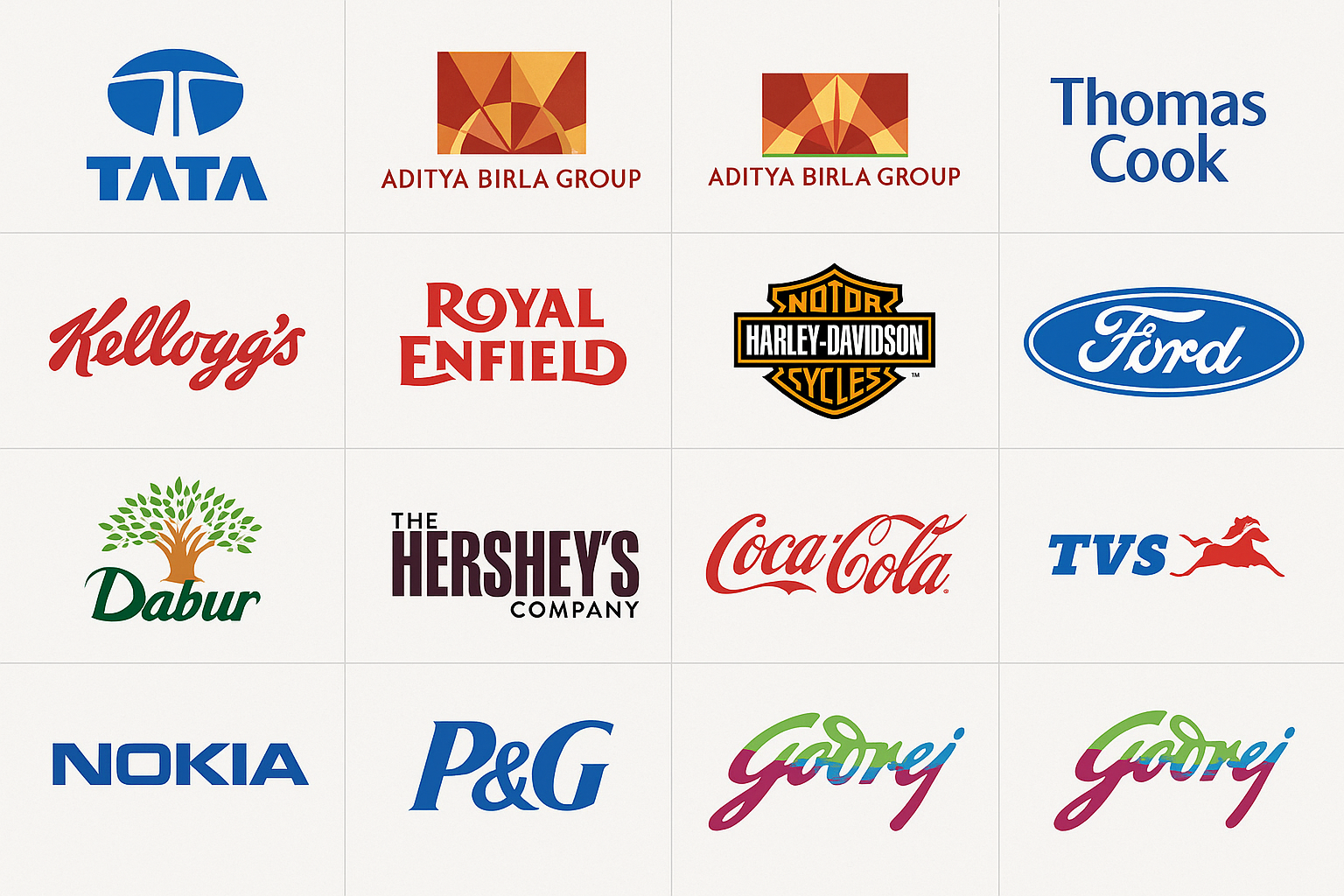In a business world driven by quarterly earnings and rapid disruption, longevity is rare. Yet, a few global corporations have defied time—adapting, rebuilding, and thriving over centuries. These firms not only endured global conflicts, regime changes, and technological revolutions but expanded in influence and scale.
The century-old cohort is not a uniform group. It spans industries as diverse as steel, automobiles, FMCG, and telecommunications. From India’s colonial-era conglomerates to America’s industrial pioneers, these firms built legacies not through luck, but resilience and reinvention.
Here is a curated list of some of the most iconic companies that are over 100 years old—and still operating at scale.
India’s Oldest Corporate Legacies
Tata Group (Founded: 1868)
India’s oldest and most respected conglomerate, the Tata Group began as a trading firm under Jamsetji Tata. Today, it spans over 100 companies across technology, steel, power, auto, hospitality, and more. With TCS leading the IT sector and Tata Motors reshaping EVs, the group remains India’s most valuable business house.
Aditya Birla Group (Founded: 1857)
Started in the backdrop of the 1857 uprising, the Birla Group grew from a cotton trading business to a Rs 3.5 lakh crore multinational. Operating in 36 countries, it owns marquee brands in cement, aluminum, apparel, and telecom. Its ability to balance legacy and scale has kept it competitive even in global markets.
ALSO READ: Korinmi, India’s First Korean Skin Clinic, Secures Rs 3 Crore in Fresh Funding
Wadia Group (Founded: 1736)
Predating all others on this list, the Wadia Group started in shipbuilding for the British East India Company. It now owns Bombay Dyeing, Britannia (part ownership), and formerly GoAir. Despite generational transitions, the family-owned firm remains one of the longest-standing in Asia.
Dabur (Founded: 1884)
From Ayurvedic remedies in Bengal to a Rs 11,000 crore FMCG empire, Dabur built a wellness-driven brand before the term existed. Its top products—Chyawanprash, Real Juice, and Vatika—are household names in India and abroad.
TVS Group (Founded: 1911)
What began as a transport service in Madurai is now one of India’s largest two-wheeler manufacturers. TVS Motor Company is a global brand, with a presence in over 60 countries and a consistent push into electric mobility.
Godrej Group (Founded: 1897)
Launched with a single padlock, Godrej evolved into a major player in appliances, consumer goods, defense, and real estate. The group has remained family-controlled and innovation-focused while maintaining deep brand loyalty.
Global Companies That Shaped Modern Industry
Thomas Cook (Founded: 1841)
The pioneer of modern tourism, Thomas Cook changed how the world travels. Though its UK arm collapsed in 2019, its brand survives in India, where it remains a leader in travel and forex services.
Kellogg’s (Founded: 1906)
The breakfast revolution began in Michigan with cornflakes. More than a century later, Kellogg’s continues to shape breakfast tables in over 180 countries—including India, where it established a strong presence in the 1990s.
Royal Enfield (Founded: 1901)
Originally British, now fully Indian, Royal Enfield is a rare example of a colonial-era brand reinventing itself. Its Classic and Bullet models continue to dominate India’s retro bike market.
Harley-Davidson (Founded: 1903)
The symbol of American road culture, Harley has weathered multiple crises and remains relevant in the premium motorcycle segment. Though its operations in India have fluctuated, it retains brand equity globally.
Ford Motor Company (Founded: 1903)
Henry Ford’s introduction of the assembly line changed manufacturing forever. The Model T made car ownership affordable. Ford’s legacy continues, even as it pivots to EVs and autonomous vehicles.
Hershey’s (Founded: 1894)
Milton Hershey’s vision of mass-producing chocolate made it a household staple. Its Indian operations today include Brookside, Kisses, and nutrition-focused products, indicating its ability to diversify.
ALSO READ: Kerala Startup Crafts Stunning 63,000 Sq Ft Met Gala Carpet from One Million Flowers
Coca-Cola (Founded: 1886)
From pharmacy tonic to global soft drink giant, Coca-Cola’s rise has paralleled consumer capitalism. After its forced exit from India in 1977, it returned in 1993 to regain its leadership position.
Procter & Gamble – P&G (Founded: 1837)
Starting with candles and soap, P&G now dominates global FMCG with brands like Tide, Gillette, and Pampers. Its ability to localize products has helped it maintain relevance across cultures.
Nokia (Founded: 1865)
Initially a paper mill in Finland, Nokia later pivoted to rubber, cables, and eventually mobile phones. Though it lost its smartphone lead, it remains vital in 5G and telecom infrastructure today.
Lessons in Endurance
What unites these companies is not just age—but adaptability. Many outlasted political upheaval, digital disruption, and global recessions by doing three things well:
- Investing in innovation while protecting core values
- Building brand trust through generations
- Repositioning during economic and cultural shifts
Their stories offer a blueprint—not for speed, but for sustainable success. In an age where startups burn bright and fade fast, these companies remind us that the ultimate competitive edge is durability.



